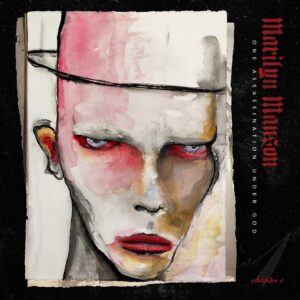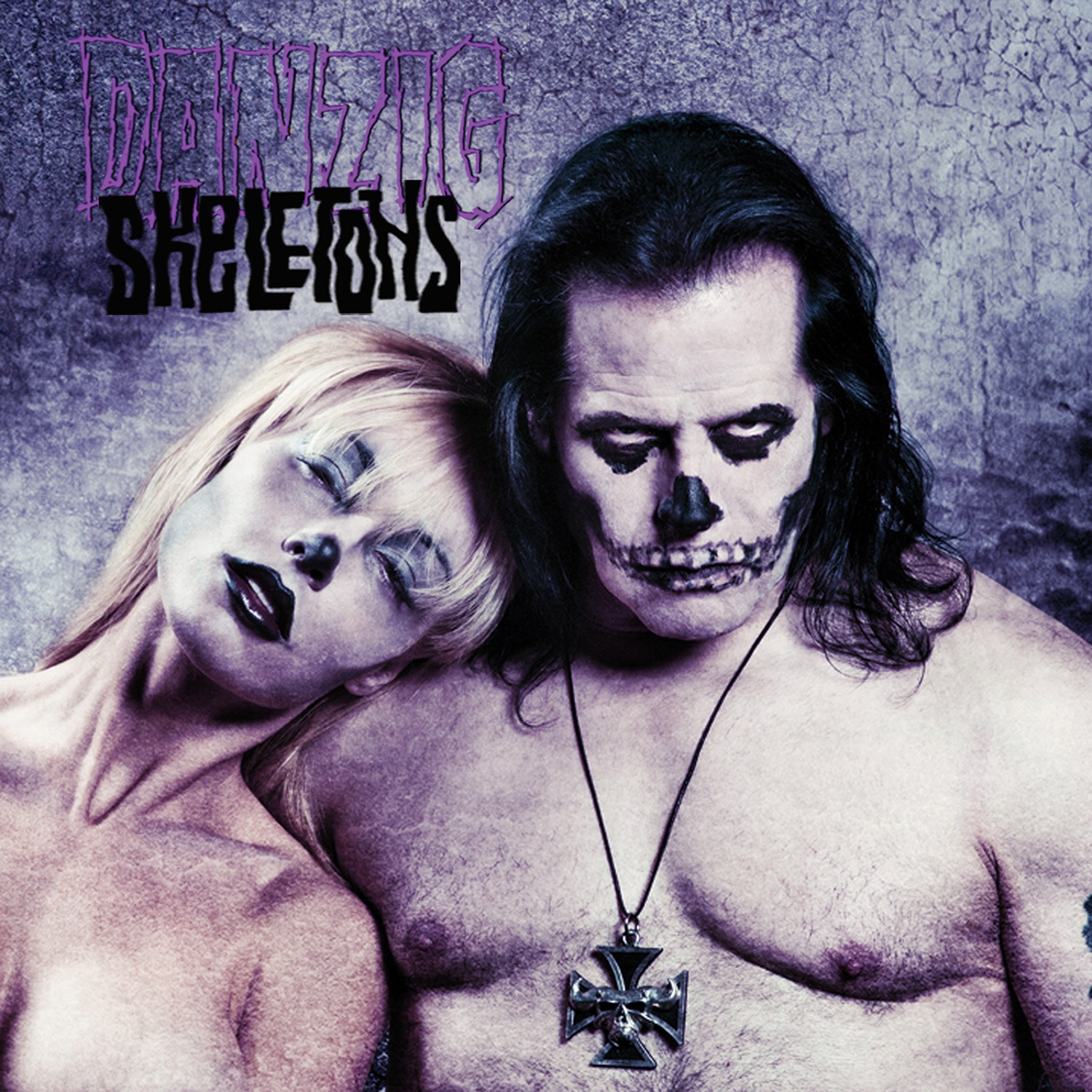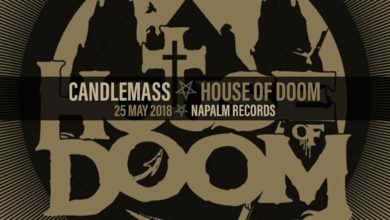 Marilyn Manson‘s One Assassination Under God represents both a return to his roots and a bold evolution of his sound. This new offering is charged with a darker, more introspective energy, embracing themes of death, societal corruption, and the struggles that have marked Manson’s career. A departure from the raw industrial sound that defined earlier albums, it merges post-rock elements with his signature gothic rock style, showing an artist who has matured yet retained his rebellious edge.
Marilyn Manson‘s One Assassination Under God represents both a return to his roots and a bold evolution of his sound. This new offering is charged with a darker, more introspective energy, embracing themes of death, societal corruption, and the struggles that have marked Manson’s career. A departure from the raw industrial sound that defined earlier albums, it merges post-rock elements with his signature gothic rock style, showing an artist who has matured yet retained his rebellious edge.
The album features standout tracks such as “No Funeral Without Applause,” which taps into the brooding atmosphere of Holy Wood and Mechanical Animals, combining introspection with biting critique. This track reflects Manson’s mastery in balancing personal vulnerability with societal rage. “Death Is Not A Costume” evokes his early days, yet with a twist, incorporating a more layered, complex sound that hints at influences from bands like Joy Division. The haunting “As Sick As the Secrets Within” lingers long after the track ends, a testament to Manson’s ability to blend the macabre with emotional depth.
Lyrically, the album takes on a deeply personal tone, with songs reflecting Manson’s ongoing battles with identity, addiction, and public perception. Lines such as “mother can’t mourn me, father won’t win my fight” from “Sacrifice of the Mass” encapsulate his enduring struggles with his parents and public image, while also touching on the broader theme of spiritual desolation. However, this is not merely an album of bleakness; tracks like “Nod If You Understand” offer defiance and rebellion, with a fierce energy that makes it feel like a middle finger to Manson’s critics and naysayers.
What sets One Assassination Under God apart from its predecessors is its reflection on Manson’s journey through public scrutiny and personal demons, particularly in light of the controversies surrounding his career. Instead of sounding like a desperate attempt to recapture the past, the album feels like a cathartic release, blending the rawness of his earlier work with the wisdom of years spent in the public eye.
The production, handled by Tyler Bates, is nothing short of stellar, giving Manson’s voice room to soar between delicate whispers and guttural screams, often within the same song. This dynamic range not only showcases Manson’s vocal prowess but also enhances the thematic weight of the album. The meticulous construction of each track ensures that no moment feels wasted, and the album’s overall vibe—both oppressive and reflective—provides a compelling atmosphere from start to finish.
As the first part of a projected multi-album arc, One Assassination Under God is an ambitious step forward in Manson’s career, exploring new sonic landscapes while reflecting on old wounds. The album is a masterclass in rock, balancing nostalgia with innovation. For long-time fans, it offers a satisfying blend of the past and present; for new listeners, it serves as an intriguing entry point into Manson’s complex musical world.






